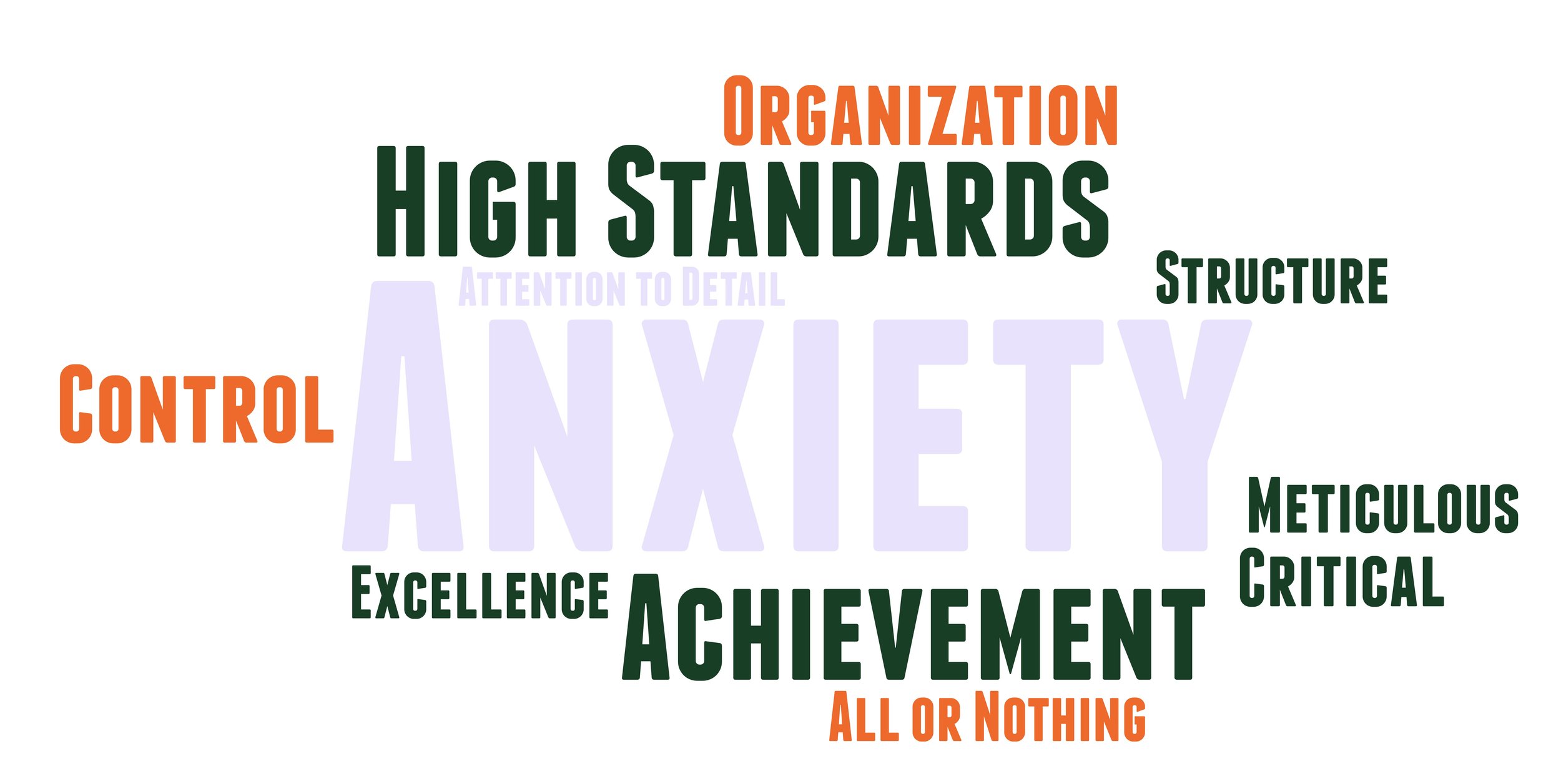ADHD and Perfectionism
I’ve seen it time and time again.
A client comes to me who has known for years that they are struggling with an eating disorder.
They have seen SO many providers to get help and just can’t seem to get a handle on things.
People think they are getting by in life “just fine”, even though they are struggling deeply beneath the surface.
They are reaching out for help with their eating disorder, but don’t realize that perfectionism is covering up undiagnosed ADHD. They don’t realize how ADHD and perfectionism are impacting their attempts to heal their relationship with food.
You might wonder what perfectionism and ADHD have to do with one another.
The stereotype of someone with ADHD is often a scattered-brained person who struggles to accomplish tasks. For many people with ADHD, this is far from the truth.
Read on to learn about how ADHD and perfectionism can show up together.
Perfectionism as a Mask
What comes to mind when you think about perfectionism?
Perfectionism can help us achieve great things and feel a sense of control.
It can also make use feel inadequate when we fail to meet the impossibly high standards that perfectionism demands of us.
Perfectionism can act like a shield.
It gives us a sense of safety, a feeling of control and ensures that our flaws are not on display to be criticized or rejected by anyone but ourselves.
Eating Disorders and Perfectionism
The links between eating disorders and perfectionism are fairly easy to see. The eating disorder behaviors are often another version of the perfectionism mask.
Focusing on what we think we can control- our food intake, the size of our body- helps us cope with the uncontrollable in our lives. Of course eating disorders can help us cope, but at some point they lose effectiveness or simply take too much from us to be worth it anymore.
Perfectionism can also show up in the way we relate to our bodies.
Noticing all the flaws and ways we aren’t “good enough”
Comparing ourselves to the idealized image society deems most worthy
Striving for a standard that is unreachable and inherently harmful
ADHD and Perfectionism
The connections between perfectionism and ADHD may be more difficult to see at first.
Characteristics like organization, structure and achievement often don’t fit with our preconceived notions of an ADHDer.
When we think of someone with ADHD, we are likely to think of someone who is scatter-brained, disorganized and struggles to get things done.
How is it that ADHD and perfectionism can coexist in the same person?
Let’s picture it- You are a young person, being socialized as a girl, and seeing all the expectations that are placed on you by society.
You are someone who is
naturally sensitive to feelings of rejection
highly aware of your external environment
and really smart.
As a child you struggle with regulating your emotions, even more than other children your age. Desperate to be accepted, you start using your observation skills and intelligence to try and appear “normal”.
You start to create ways to mask and hide the traits that are seen as “bad” and you’re pretty good at it.
You rely on anxiety and fear of failure to make up for your difficulties with executive functioning.
You are praised for doing well in certain areas of your life and even though you are anxious, self-critical and terrified of making mistakes, you trudge forward.
You don’t know it yet, but you are start using perfectionism to conceal your neurodivergence.
The pursuit of excellence becomes a mask that conceals your authentic self and reinforces the belief that you must conform to societal expectations at all costs.
You don’t know that you masking ADHD because the dominant narratives about neurodivergence don’t fit with what others perceive you to be. You are more likely to make it to adulthood undiagnosed and unsupported.
Perfectionism develops as a way to protect from being seen as different. It can be effective for a while at helping to fit in and avoid judgment. However, just like eating disorders, it eventually starts to do more harm than good. Masking neurodivergence takes a huge toll on our mental and physical wellbeing.
Putting it All Together
So many of those who develop perfectionism as a way to mask underlying neurodivergence get “missed” by providers who mean well but are stuck in the stereotypical profile of ADHD. When we try to address perfectionism without understanding the context of neurodivergence, we are often times missing too many pieces of the puzzle.
Sometimes, even when we have all of this context, recovering from an eating disorder or “unmasking” still doesn’t feel safe. Discrimination against those with bodies not deemed valuable or acceptable by society is real and dangerous. It is completely understandable that perfectionism, masking and eating disorder behaviors are used to try and create safety in a world that is not safe for so many bodies.
We are all doing our best to cope with the tools and information we have access to.
Getting Help with ADHD and Perfectionism
You deserve to understand the way your unique brain informs and interacts with your relationship to food and your body. You deserve to live in a world where the differences in your brain and body are accepted and celebrated.
There is SO much more I want to explore on the topics of ADHD, perfectionism and eating disorders. But, in an effort to let go of perfectionism, I am going to publish this blog post now and trust that I will come back with more posts in the future to explore these topics further!
For now, if you are looking for help letting go of perfectionism so that you can heal your relationship with food and your body, I am here. We can work together to figure out how to feed and take care of the body and brain that you have, not the one you think you “should” have.



